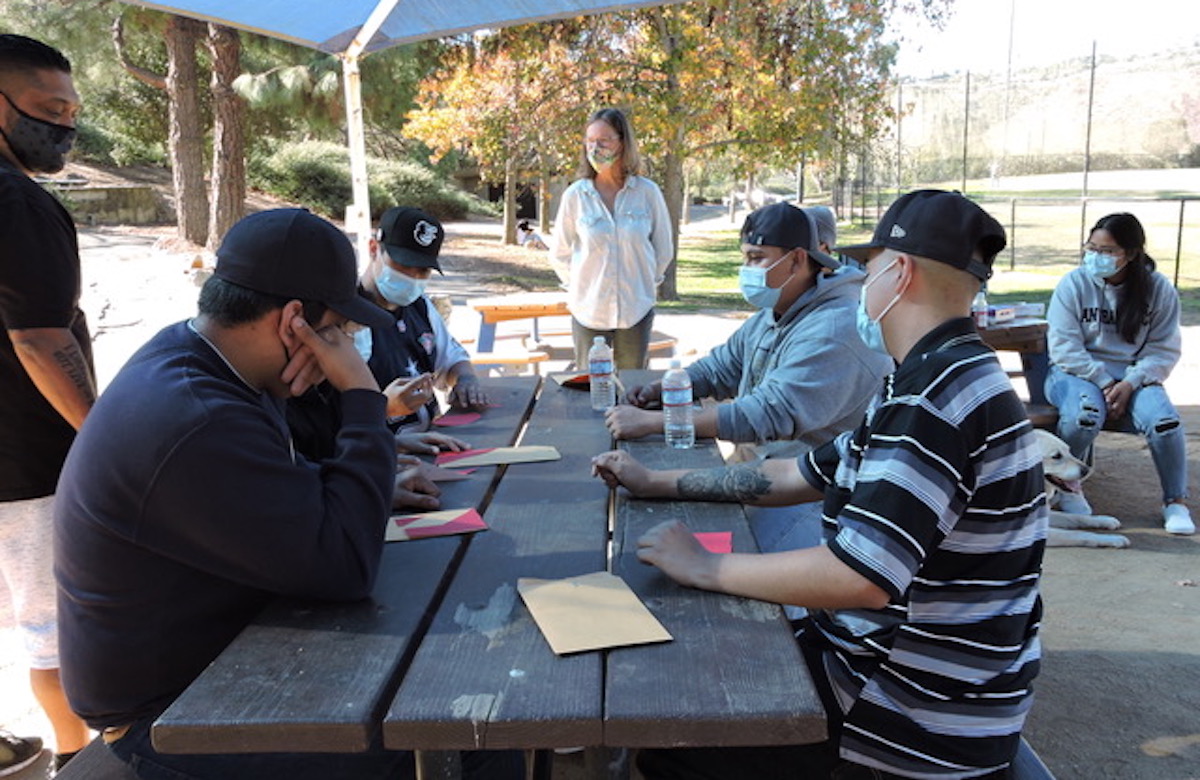Teens Find Comfort in Santa Barbara’s Alternatives to Violence Project
All-Ages Outreach Program Holds Monthly Workshops for Area Youth at Elings Park

“Troubled” teens often get a bad rap, but area youth outreach programs are working to reach these kids — who can be disregarded at school and at home — and make them feel connected to their community and themselves.
Santa Barbara’s Alternatives to Violence Project (SBAVP) was founded in 2018 and was the first of the worldwide organization’s community workshops to refer youth from area middle and high schools to its program.
When inmates who survived the 1971 Attica Prison riot — a violent outbreak based on prisoners’ demands for better living conditions that left 43 dead — teamed up with New York state Quakers to create a program aimed at resolving conflicts, they started the Alternatives to Violence Project (AVP). The project quickly spread through word of mouth to host workshops in prisons across the country. It’s designed to encourage individuals to take responsibility for themselves and the consequences of their actions, to be part of a community, and to find options to “fight or flight” when faced with conflict.
The project’s Santa Barbara chapter is headed by Executive Director Pat Hardy and Program Director JP Herrada. Hardy has been involved in AVP for more than 25 years and said that the Santa Barbara program is special because it reaches the students who are getting in trouble at school and who don’t have a place they can feel comfortable being themselves.
“They have an opportunity to speak,” Hardy said. One of the benefits of the volunteer-led workshops, she said, is that the teenagers are allowed to get to know themselves without pressure or judgement. “They actually have an opportunity to look at themselves without being told to look at themselves.”
The workshops are described as “organic,” with no lectures or keynote speakers. The kids are led through a series of exercises and games that allow them to break out of their comfort zones. Many of the teens are referred through their schools after being suspended or disciplined for acting out in school, but Hardy says when there is an open, inviting environment, the walls come down.
Sign up for Indy Today to receive fresh news from Independent.com, in your inbox, every morning.
“What happens in the workshops stays in the workshop,” she said. Though the students are sometimes hesitant to get involved, when they see their peers opening up, it helps them break out as well. “The kids start uncrossing their arms; they don’t hide behind their hoodies,” Hardy said. “It’s sort of like peeling a shell off a hardboiled egg; it comes little by little.”
The program saw a lot of progress with its students in the first two years, with many completing the 20 hours and earning a certificate. When the pandemic came, the in-person meetings were forced to be canceled, and organizers had to be creative with the workshops.
“It’s been a challenge because they are in person normally,” Hardy said. They expanded to offer workshops to adults as well as the teens referred by schools. It was tough, she said, to get the same engagement over video. “The kids didn’t respond to Zoom.”
Elings Park became the new home to in-person workshops, which are still open to 20 people per session, outdoors and with masks. Some teens who have been through the program go on to apprentice as facilitators, and Hardy said the workshops are not the end of the road. “There are excellent services throughout the community; we refer them to these other organizations.”
She said that many of the referrals are teenagers from Mexican-American backgrounds, bilingual, and first-generation citizens. Coming from this background can be difficult because they are split between the world of their parents and the world of their peers. “It’s hard enough to be a teenager, but to be a teenager in another culture is even more so,” Hardy said. Helping these teens find themselves is what keeps her volunteering after more than 25 years.
“It’s without a doubt the most satisfying thing I have done,” she said.
For those in the program, the skills used in these exercises and games carry over into their home and school lives, and they are able to find the roots of their issues. “The material at AVP can be used for everything, with family, friends, even at school,” said 16-year-old team coordinator Lisette Valente. “One thing that really helped me was being able to talk without feeling judged. I felt heard, and the confidence that gave me has helped improve my leadership skills.”
Support the Santa Barbara Independent through a long-term or a single contribution.



